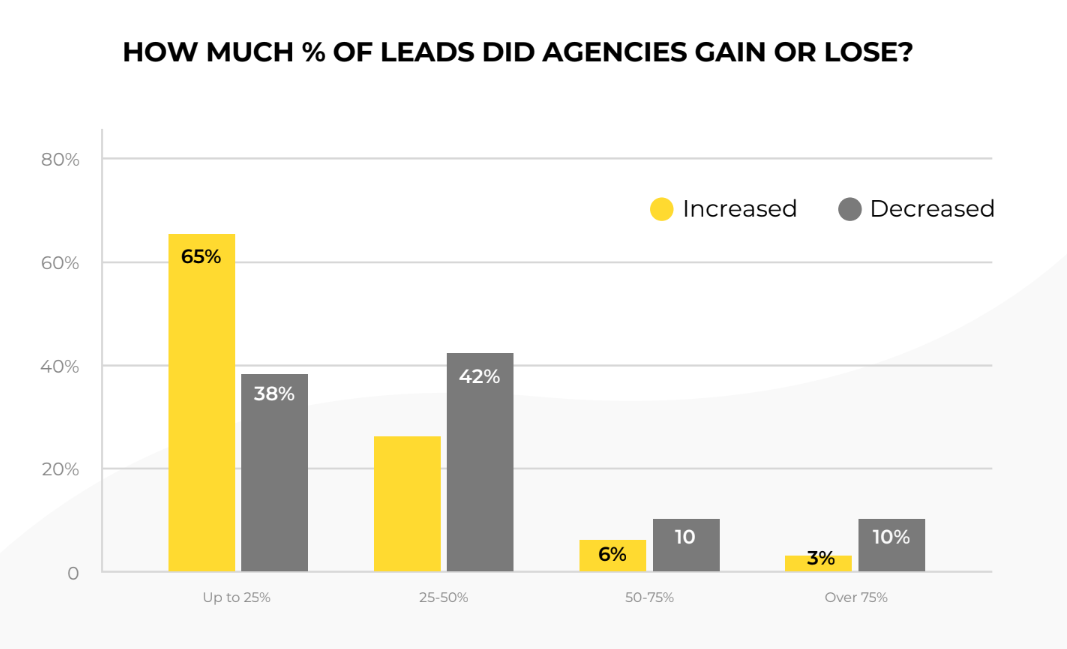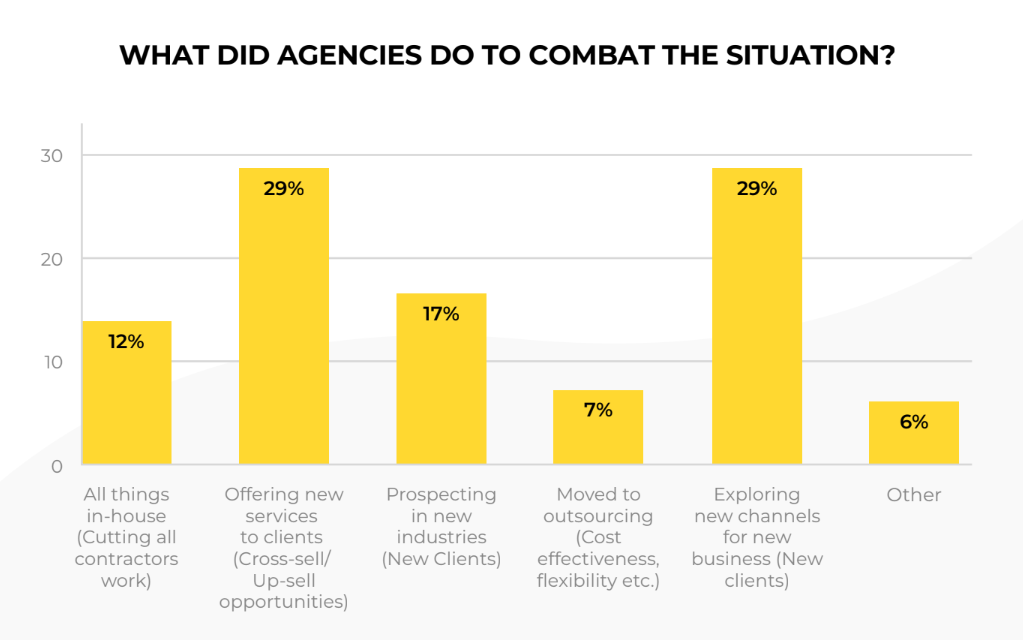How marketing agencies in the UK have been impacted by Covid-19

What has the year 2020 shown us in terms of B2B marketing? Everything is becoming increasingly digital: events, marketing activities, business communications and the list goes on. In addition, it is becoming more and more difficult to make plans and schedule activities for the future – this is particularly the case when considering B2B marketing budgets for 2021. This year in particular has taught us how quickly plans can be thrown overboard and have to be rethought. The Corona pandemic has presented us all – companies, agencies and service providers – with major economic challenges. This has been demonstrated by the Uplers Report, which shows how digital agencies have dealt with the challenges and what effects are still being felt.
The impact:
It is currently clear to all that a return to normality is not yet possible and it is unknown how long the effects of Covid-19 will be felt by companies. Nevertheless, it is already evident that the world of marketing and advertising will change forever. In fact, 57% of agencies expect the effects of Covid-19 to last longer than 6 months. It is clear to them that there is no quick solution to overcome the negative impact of this crisis. Nevertheless, this “pause” in normal business operations offers agencies the chance to streamline their processes, become more efficient and realign their current strategy.
The pandemic has obviously had a large effect on businesses’ revenues with the majority of agencies experiencing a decrease in their overall revenue. Smaller agencies -with less than 25 employees- have been the hardest hit and have felt the largest negative impact on their revenues.
It is interesting to note that although all industries are likely to have been negatively impacted in some way by the pandemic, specific industries have actually been able to thrive in these unprecedented times. The Covid crisis has forced agencies to make a huge digital transformation very suddenly, as this has been the only way to survive in the new normal. Hence, unsurprisingly the Technology and Ecommerce industries have significantly grown during the time of the pandemic. Why? Because businesses have been desperate to use the latest technology and digital marketing techniques in order to compensate for their inability to rely on more traditional forms of marketing. On the other hand, the sectors which have been most negatively impacted include the Consulting and Legal Services and Manufacturing. This is most likely due to the lack of funds businesses had spare to spend on these areas.
The crisis has also caused changes in lead generation opportunities. Not only has the rate of lead generation altered within agencies, but also the way in which leads are produced has dramatically changed. Nearly 50% of agencies experienced a decrease in their marketing leads, again with smaller agencies being the most negatively impacted. In more positive news, the agencies who had the scope to actively spend on their marketing strategy during the pandemic saw an increase in leads. Hence, those agencies who had spare capacity when it came to marketing budget were able to take advantage of the reduced competition in the market that Covid-19 brought about.

Image source: all graphics used are from the Upler Report
The Reaction:
Although some businesses have been more severely impacted than others by the Covid-19 effects, there is one clear conclusion: agencies have had to change and adapt to the new circumstances in order to remain in the market. To do this, they decided on 6 approaches:
- They have reduced their costs by bringing the majority of their work in-house.
- They have introduced a new range of services to clients. Through agencies expanding their overall offering they have been able to attract new clients and stay afloat.

- They have been educating their clients to explore the use of new marketing channels. Agencies are encouraging their clients to increase their investment into digital marketing techniques and email marketing was their most widely recommended channel to their clients.
- They have been reaching out to new clients and industries using new digital methods and via multiple online channels.
- They have focused on outsourcing due to its advantages of cost-efficiency and flexibility. In fact, 80% of agencies noted that they would explore and increase their investment in outsourcing moving forward.

- They have been offering more flexibility to their clients. Agencies have aimed to offer more flexible contract terms, fees and services for their clients in order to compensate for the tough times we are experiencing. For instance, 28% of agencies were able to reduce their pricing for their clients.
The Conclusion:
Doing nothing and waiting for normality to return is not a solution. The motto now is to grab hold and prepare for the future – because the new normal is already here. Yes, the business world has changed and will continue to change. Therefore, agencies need to be prepared to change with the external environment. For example, it will be crucial to keep up with the latest technological trends and to invest in your overall digital strategy. This will not only enable you to remain competitive, but also will improve your business opportunities. Flexibility and adaptability will be two key values moving forward into this new normal. The pandemic has proven to us that nothing is certain and that dramatic change can occur at any time. Be ready to challenge the convention and bring innovation to your approach. By implementing this strategy, you will be better prepared to effectively serve your customers in our new (and unknown) future.




